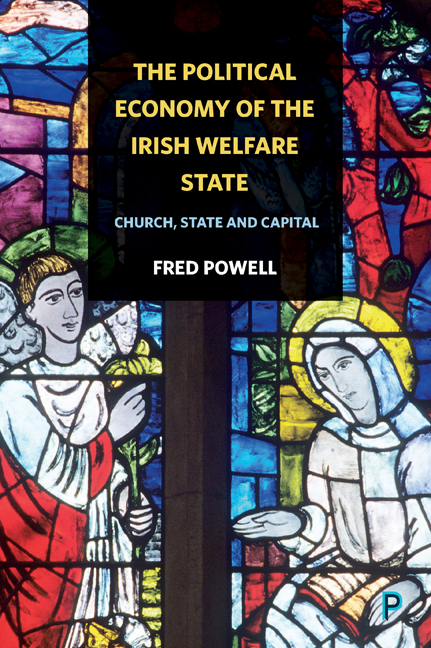Book contents
- Frontmatter
- Dedication
- Contents
- Preface
- Introduction
- one Why the welfare state matters
- two Revolution, culture and society
- three Welfare in the Free State
- four Religious nationalism, sectarianism and anti-semitism
- five The welfare state debate
- six Poverty and social inequality
- seven Liberty, gender and sexuality
- eight The marketisation of the welfare state
- nine Crisis, austerity and water
- ten Conclusion
- References
- Index
ten - Conclusion
Published online by Cambridge University Press: 08 April 2022
- Frontmatter
- Dedication
- Contents
- Preface
- Introduction
- one Why the welfare state matters
- two Revolution, culture and society
- three Welfare in the Free State
- four Religious nationalism, sectarianism and anti-semitism
- five The welfare state debate
- six Poverty and social inequality
- seven Liberty, gender and sexuality
- eight The marketisation of the welfare state
- nine Crisis, austerity and water
- ten Conclusion
- References
- Index
Summary
The problem we have to transcend is that many intelligent people put their faith in the idea of self-regulating markets as piously as others put their trust in God. Now that this God has failed, perhaps people will have the freedom to see things more clearly again, reclaim responsibility and organise the future in more promising terms.
David Begg, The Irish Times, 3 October 2008In this opening comment David Begg, the General Secretary of the Irish Congress of Trades Unions, invokes Karl Polanyi in an analysis of the 2008 crash, arguing:
Polanyi's great attraction lies in his concern to advance both freedom and social justice. He believes that allowing the market to control the economic system was a fundamental error because it meant no less than the running of society as an adjunct to the market. Instead of the economy being embedded in social relations, social relations are then embedded in the economic system.
Begg concludes: ‘Polanyi points out that human beings are not a product made for sale. Nevertheless, upon the fiction that labour is a commodity is the whole market system organised. It is therefore based on a lie’ (The Irish Times, 3 October 2008). In these prophetic words Begg demonstrates the folly of the Celtic Tiger project, built on a fable that unlimited wealth from foreign direct investment (FDI) could enable Ireland to become one of the richest countries in the world. The 2008 crash exposed the Celtic Tiger as a fiction.
The purpose of this book has been to evaluate the political meaning and social reality of the Irish welfare state at the centenary point of the Irish Revolution (1913-23). As a democratic ideal, the welfare state is widely represented as the completion of citizenship, which has evolved from civil rights through political rights to social rights, which give it its institutional embodiment (Marshall, 1975). The welfare state is grounded in modern republican values of justice, decency and fairness. On the surface, Ireland as a political construct is defined by a republican imaginary. But scratching beneath the surface of its rhetorical (and sometimes violent) force, it is hard to find a clear set of political values informing Irish republicanism.
- Type
- Chapter
- Information
- The Political Economy of the Irish Welfare StateChurch, State and Capital, pp. 265 - 270Publisher: Bristol University PressPrint publication year: 2017



